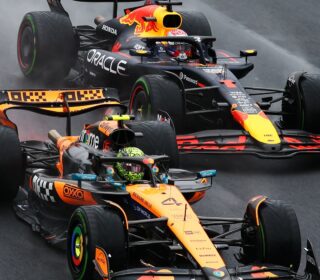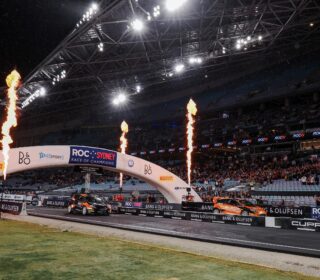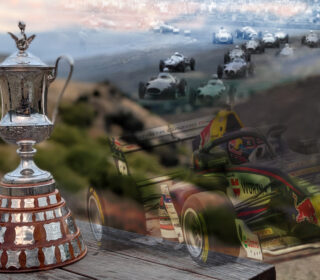The Pro-Am history of the Bathurst 12 Hour
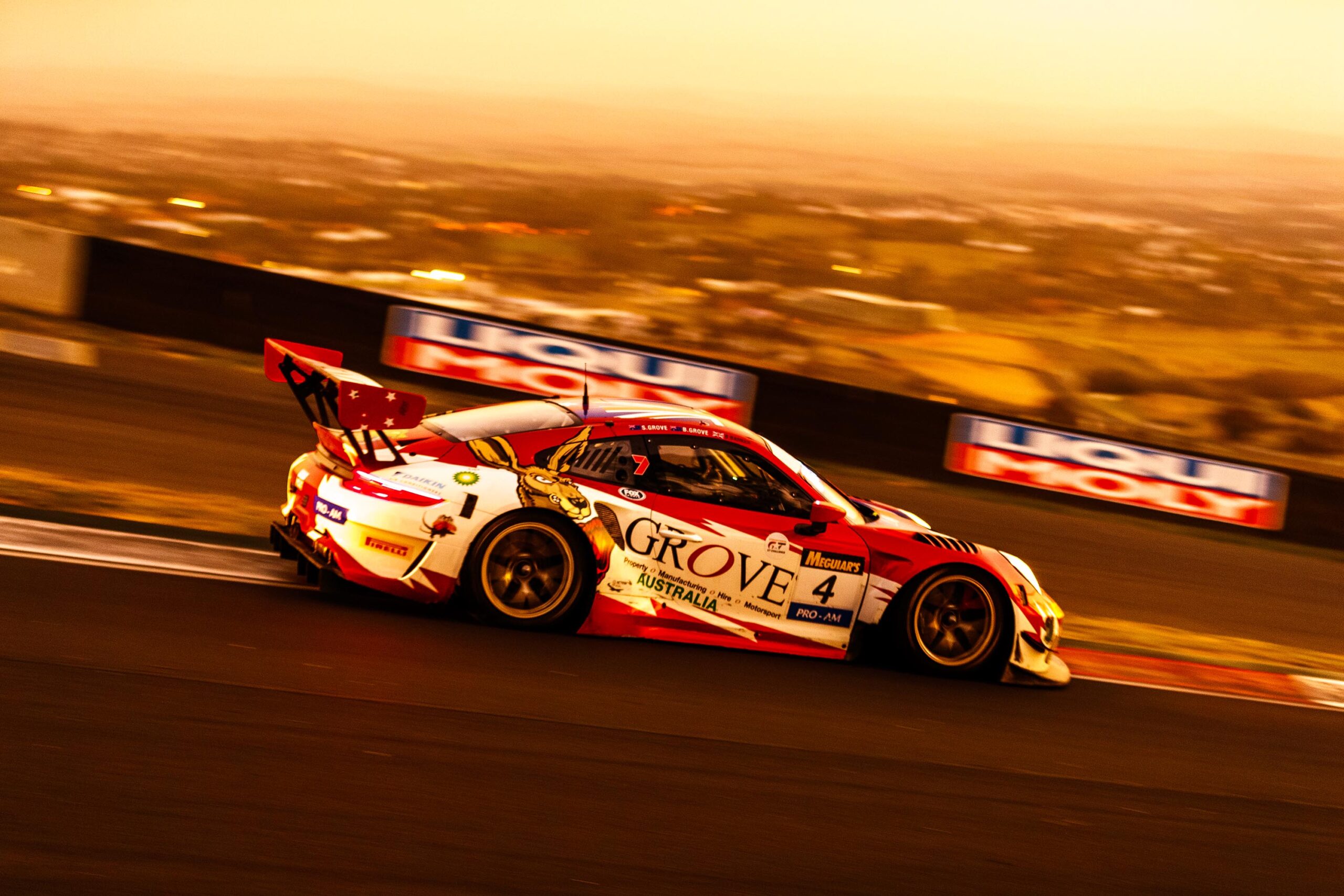
THE history of Australia’s International Endurance race is rooted in it being an affair for both professional and amateur drivers alike.
It’s a system that will return in 2022 thanks to the current global situation and the challenges of bringing the manufacturer-backed professional squads Down Under in 2022.
The rule change basically says that each car in the outright category must have one ‘Bronze’ ranked driver in their squad to be legal.
Bronze is the lowest of the FIA’s four-tier driver categorisation system and if you hold that ranking, for all intents and purposes means that you’re an amateur driver.
Mandating specific combinations of drivers based on their ranking level in the 12-Hour is not a new thing.
The first six editions of the race to be run in the ‘GT era’, which commenced in 2011, mandated that each entrant contained at least one driver classified by the FIA driver ranking system as an ‘amateur’, or be ‘unseeded’ by the local rule makers.
Basically no combination could have more than two ‘professional’ or ‘seeded’ drivers making the selection for the third driver key.
In many instances it was the car owner – the one generally paying the bills – who would be the unseeded driver, drafting in some guns-for-hire to give them a shot at winning.
In others, teams or manufacturers would work the system to find the best possible driver not classified as a professional to fill out their squad and give them the best chance at a Bathurst win.
Though often a controversial topic, rankings systems have been a longstanding component of GT3 racing around the world for years; one that allows for the semi professional or amateur racers who often comprise a significant portion of the grid a chance to compete for their own class trophies or in many instances, outright victory.
The system has changed and evolved over the years with Bathurst now governed by the much more rigorous FIA driver ranking system used by GT racing around the world.
While a so-called ‘Sneaky Silver’ is still a thing, it’s much harder to find a bronze-ranked driver that is going to go and smash lap records week in, week out (because if they do, they’d not be Bronze for long).
Prior to the introduction of the Intercontinental GT Challenge powered by Pirelli in 2016, and the subsequent shift to fully-professional combinations at the pointy-end of the field one year later, the 12-Hour was officially a Pro-Am race with professionals and ‘unseeded’ drivers (those not ranked professional by the organisers at the time) mixing in the outright entries
While in many instances the nominated ‘unseeded’ driver was often every bit as fast and capable as the Professionals they shared with – often creating its fair share of controversy and discussion in the process – by the letter of the rules at the time, six ‘Am’ drivers have won the 12-Hour outright since it shifted to GT3 regulations a decade ago.
They include Darryl O’Young (2011/12), Alex Roloff (2013), Peter Edwards (2014), Florian Strauss (2015) and Jonathan Webb (2016).
Edwards’ is perhaps the ultimate example of a true ‘Am’ or Bronze-ranked driver claiming the outright win: anchoring the Maranello Motorsport team with professional stints throughout the 2014 race that allowed John Bowe, Mika Salo and at the end, Craig Lowndes, to give Edwards’ Ferrari and the iconic brand their first win on the Mountain in a major enduro.
In fact, the Maranello Motorsport car was entered in the ‘Am’ class – and not Pro-Am – thanks to the quirk in the rules that ensured any driver over 50 was not classified as a professional. Just call it the JB rule..
Since 2017, Pro-Am has been a class within the broader GT3 category and it has been no less competitive with class entries remaining firmly in outright contention in most of the recent editions.
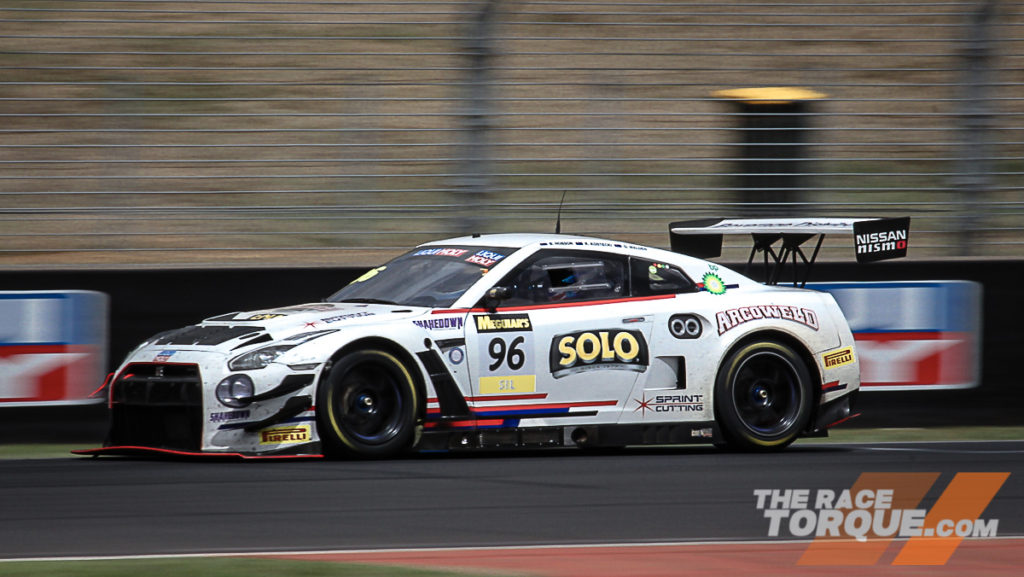
That year, a Pro-Am car finished second outright when Matt Campbell, Patrick Long and Marc Lieb joined forces with car owner David Calvert-Jones to finish second outright in their Competition Motorsport Porsche 911GT3R.
A year later a Pro-Am Porsche repeated the podium effort from a year prior: Jeroen Bleekemolen, Luca Stolz and Lieb teaming with American racer and businessman Tim Pappas in his Black Swan Racing Porsche to finish third outright.
In a case of what could have been for Porsche, the Black Swan entry was thought to be the first car able to make it to the finish of the race on fuel, before a red flag ended the day 22 minutes from home – handing the win to Audi Sport Team WRT.
The depth of the professional contingent in the 2019 field ensured Pro-Am competitors had a harder time making it near the podium: the class that year claimed by a strong 9th outright finish by the AF Corse-run Spirit of Race Ferrari team and drivers Pedro Lamy, Mathias Lauda and Paul Dalla-Lana.
The last 12-Hour run, in 2020, saw a Pro-Am class victory for Grove Racing; they paired fast Brit Ben Barker with the father and son team of Brenton and Stephen Grove to finish 10th outright and claim their fifth Bathurst class victory aboard their Porsche – the most ever by a single team in 12-hour history.
Remarkably though, they weren’t the first of the class runners home: two positions further up the road, 59Racing’s McLaren 720S GT3 not only finished eighth outright but claimed the all-amateur ‘Silver’ class, thanks to the efforts of Martin Kodric, Fraser Ross and Dom Storey.
The 2022 chapter of the event may look different to the all-professional GT3 grids that have produced thrilling races since 2017, but there’s no doubt that the race will lose little if any of it’s lustre with this rule change.
Ultimately, the professional drivers will be in the car for the final hour and the traditional grandstand Bathurst showdown will add another captivating chapter to the 12-hour’s history book.
Author Richard Craill has called every Bathurst 12 Hour since 2007.



